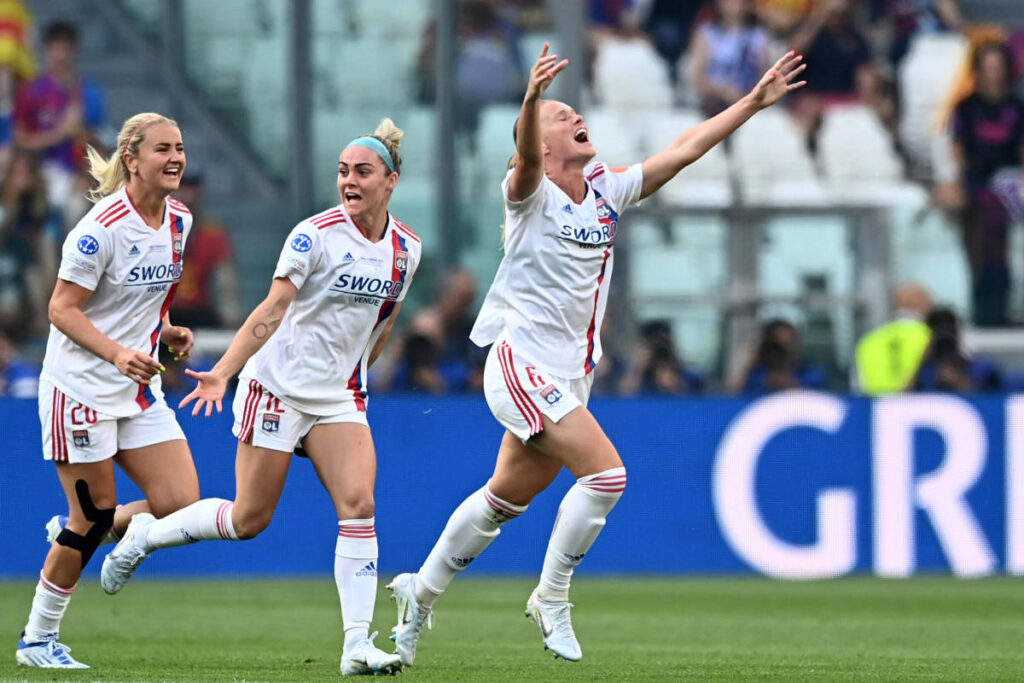UEFA’s top-tier women’s competition enters its knockout phase this week, promising long-awaited rivalries and rematches between former champions. Quarterfinal matches will bring with them long-anticipated matches between longtime foes.
In 2009, the UEFA Women’s Champions League was revised and rebranded to incorporate runners-up of each of the top eight highest-ranked national associations and also added a one-leg final.
Ada Hegerberg won the Women’s Ballon d’Or in 2022 and FC Rosengard became the first club ever to win both UWCL titles back-to-back.
UEFA Women’s Champions League
The UEFA Women’s Champions League is an annual club competition that pits Europe’s premier teams against one another. Each round consists of two games over two legs between teams with the winners advancing to the next stage and ultimately to a neutral venue for final matches. Since its inaugural running back in 2001, various formats of Women’s Champions League competition have taken place and have since seen competition between clubs from around Europe compete for glory.
For the 2022/23 season, UEFA approved a new format in which 18 teams will participate in league stage play – two more than currently. Four will qualify directly through champions path while five others can access via league qualifying path.
In 2008, UEFA Women’s Champions League competition was revamped and renamed. This change included inviting runners-up from top women’s leagues as well as offering qualifying rounds and single-leg finals.
Teams qualify for the UEFA Women’s Champions League by winning either their national league or cup championship, qualifying through the UEFA coefficient system or receiving an invitation via titleholder eligibility; regardless of qualification method used, all titleholders always enter directly without group stage competition being necessary – starting in September and ending May with another women-specific competition, known as the UEFA Women’s Cup organised by UEFA as an additional event.
UEFA Women’s Cup
In the UEFA Women’s Cup, teams compete in an invitation-only knockout tournament open only to champions from UEFA member associations. Teams qualify by winning either their top national championship (which may include league or cup competitions or the highest division within domestic leagues) or qualifying through domestic league play in order to take part. It serves as one of five key priorities in UEFA’s 2019-24 Time for Action strategy; its flagship event represents this commitment and potential.
Over time, this tournament has evolved, yet remained an integral component of European club football. Once played among eight top clubs from UEFA’s highest leagues, its format has now shifted to include runners-up of each league as well as reigning champions for greater chances for teams that excel to progress to a neutral venue final venue.
At the first round of play-offs, four group winners and two best-ranked runners-up will be drawn into six ties against second-placed teams from each league; four winners of these ties will then advance to the second-round of Champions League competition. This change has proven very successful; attendance increased significantly and broadcasting rights soared; Olympique Lyonnais Feminin have been the undisputed victor since its implementation, winning eight times overall since it went into effect.
UEFA Women’s Super Cup
The UEFA Women’s Champions League is an elite club football competition for teams affiliated with UEFA that compete for top honors on an annual basis. First created as UEFA Women’s Cup back in 2001, its name was changed in December 2008 to better reflect its association with men’s Champions League competitions.
European Championship of Women’s Football Clubs is one of Europe’s premier competitions for female football clubs, and winning it can bring immense prestige both personally and for their club. This tournament consists of knockout tournaments where winners compete for a two-legged final trophy battle before 2021-22; previous years had qualifying rounds too; currently UEFA gives out special awards to its top scorer. All events under its supervision.
Visa is proud to support and sponsor such growth within women’s football. Over recent years, this competition has experienced rapid expansion, becoming the most widely watched tournament for women’s football in Europe. It serves as an incredible showcase of women’s soccer players from around the globe; each year offers unexpected twists and overachieving underdogs! This competition serves as an exemplary demonstration of European women’s football’s strength and depth while attesting to Visa’s own dedication as an organization and its continued sponsorship.
